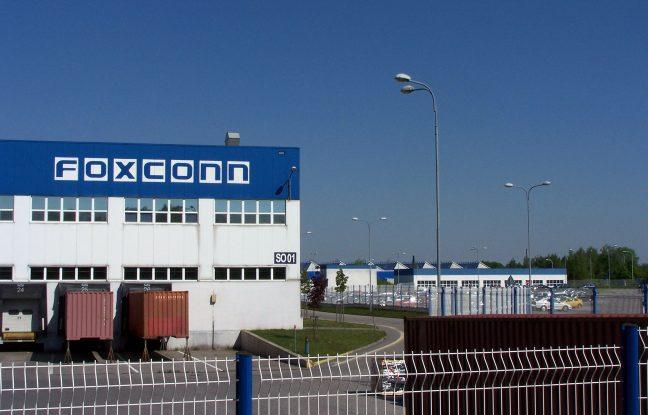What if you opened a manufacturing plant and nobody came? That might be the question Foxconn will have to grapple with as it opens its nearly 20 million square foot campus in southwestern Wisconsin. Although the plant is said to eventually require at least 13,000 employees, Wisconsin unemployment sits at a near-record low of 2.9 percent, making the job pool smaller.
Foxconn is many things, but ill-prepared is probably not one of them. Wisconsin’s relative labor shortage will not be news to them. They will have decided to put their plant here anyway because they know that it actually doesn’t matter that much to them. Foxconn will receive a comically large sack stuffed with Wisconsin public money, but they are no means required to employ Wisconsin workers. Illinois’s unemployment rate is almost a point and a half higher than Wisconsin’s, and with the plant close to the state border it can siphon up as many workers as it wants from Rockford, Chicago and everywhere in between. Foxconn has made gestures toward hiring from Wisconsin, specifically from its public universities, but it should be obvious that this is a matter of convenience, not sentimentalism. Should that particular pool of potential employees dry up, Foxconn won’t think twice about looking beyond Wisconsin’s borders.
Point Counterpoint: Foxconn will remembered as historic, successful economic reform for Wisconsin
This is not a hidden or particularly complex problem. But if the people involved with this project have noticed it or even perceive it as a problem, they sure haven’t let on. Gov. Scott Walker and the Wisconsin GOP, two primary political drivers for the Foxconn project, have long claimed that the new plant will “enter Wisconsin into the world’s high-tech economy” and, “make [Wisconsin] a brain gain state, not a brain drain state.” Implicitly, this is an acknowledgment that although this move will bring jobs of some d quality to Wisconsin, it will also bring hordes of people from outside of Wisconsin seeking work. To Walker and the state GOP, this isn’t the price Wisconsin pays for Foxconn, it’s actually part of the benefit.
So, what does all that mean for Wisconsin workers? For one, it means they don’t hold all the cards. If Foxconn was being forced to exclusively employ Wisconsin labor, or the neighboring states had similar or lower unemployment rates, the Wisconsin worker might see higher wages and less precarity. Labor would be hard to come by and harder still to replace, meaning the new Foxconn employees could feel relatively secure in their jobs and, even without any collective representation, might garner decent pay. Instead, they will have to compete with an influx of labor from out-of-state, which will drive wages down and make it easier for Foxconn to replace “unsatisfactory” workers.
The Foxconn project is not about improving the quality of life for Wisconsin workers. No company interested in making a profit can really have that as their goal, but Foxconn certainly doesn’t. The company’s Wisconsin adventure is likely to be a boost for the economic profile of Wisconsin, but it won’t bring back the glory days for the state’s working class. After all, the issue isn’t really jobs — unemployment is at a record low. The quality of the jobs is what matters. Good pay, benefits and pensions are what working people need and deserve, and every aspect of the Foxconn deal has been designed to preclude them receiving that.
From the aforementioned labor influx to the draining of the state’s budget to consistent, state-endorsed union busting, the deck is stacked against workers while every tool that might be used to ensure their well-being is mothballed. Even “skilled” workers are likely to not see their promised windfall, as the universities pump out more and more graduates explicitly tailored for Foxconn jobs. They too will see the value of their labor fall as the available labor population increases. The boss is playing with house money. What chance do the rest of us have?
Sam Palmer (spalmer4@wisc.edu) is a senior majoring in biology.


